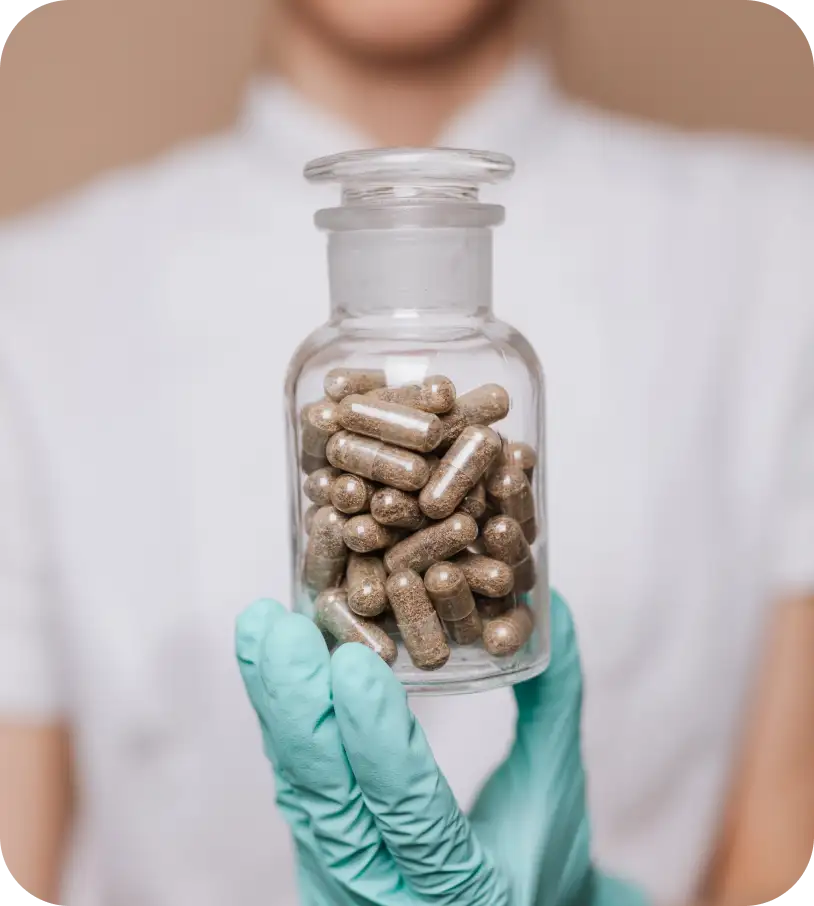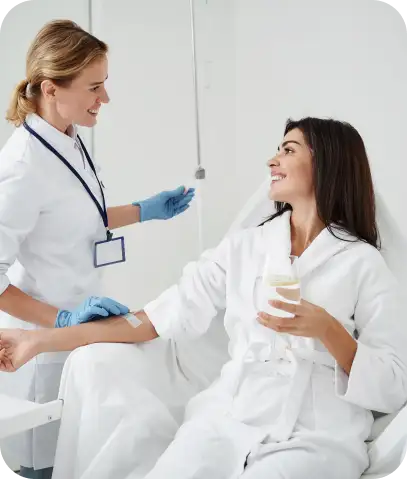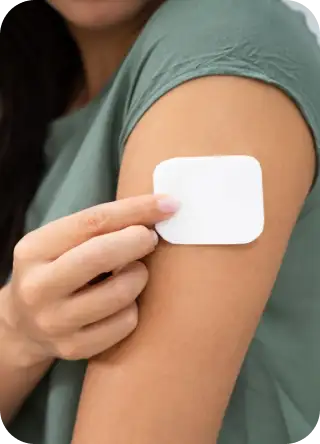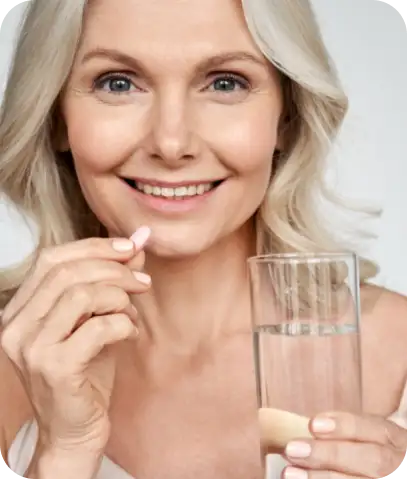What exactly is hormone therapy? Can it truly alleviate the effects of menopause? Is hormone therapy beneficial for men as well? And when it comes to hormone therapy, what sets Bio-identical HRT apart from synthetic options?


Hormone replacement therapy (HRT) is a medical treatment that involves the use of hormones, typically estrogen, progesterone, and testosterone for women, and testosterone for men. The goal of the treatment is to restore hormones that the body no longer produces in adequate amounts as we continue to age. The treatment is customized to each individual's needs and may involve once a year blood monitoring to ensure hormone levels are properly improved.
Bio-identical hormone therapy stands out as a natural form of HRT, as its molecular structure mirrors that of hormones naturally synthesized by the body. Derived from plant sources, this form of hormone replacement differs from synthetic alternatives, offering long-term safety validated by extensive research.


Certainly! Menopause marks a significant phase in a woman's life, signaling the end of menstruation and a decline in hormone production, particularly estrogen and progesterone. The symptoms stemming from hormonal imbalances during menopause can be effectively managed through hormone therapy, easing the transition and enhancing well-being.
Undoubtedly! While men do not experience menopausal symptoms, they can greatly benefit from HRT. Testosterone levels in males peak during their twenties and gradually decline each year, leading to issues like fatigue, reduced focus, diminished libido, and weight fluctuations. Prioritizing hormone balance in men is essential for optimizing bodily functions, fostering vitality, and mitigating age-related health concerns.

BHRT, short for bioidentical hormone replacement therapy, is a specialized form of medicine that aims to balance hormones and improve overall health as individuals age. Unlike synthetic hormones, bioidentical hormones are derived from plants and are designed to closely resemble the hormones naturally produced by the body. This means that the body is unable to distinguish between bioidentical hormones and its own hormones. By correcting hormone levels, BHRT can alleviate symptoms without the potential risks associated with synthetic hormones.
The journey begins with a consultation, where your symptoms and concerns will be carefully evaluated. Tests will be conducted to determine if you are a suitable candidate for BHRT. Once eligibility is confirmed, a personalized treatment plan will be created, considering your specific needs. Regular follow-up appointments will be scheduled to monitor your progress and address any questions or concerns you may have along the way.
A typical PRP treatment takes around one to two hours to complete. The duration depends on whether the PRP is administered through injections only or if micro-needling is also involved. This timeframe includes the additional 30 minutes required for blood collection and centrifugation, as well as the application of topical numbing cream.
BHRT offers numerous benefits for women experiencing perimenopause and menopause symptoms. These benefits include relief from hot flashes, night sweats, mood swings, vaginal dryness, muscle loss, and low libido. Additionally, BHRT can have a protective effect against conditions such as osteoporosis, heart disease, dementia, and other chronic diseases.
Female recommendation is every 4 months while males every six months.
Yes. BHRT can effectively address a range of menopause symptoms, including hot flashes, night sweats, low mood, anxiety, brain fog, memory issues, vaginal dryness, painful sex, loss of libido, bladder issues, and joint and muscle aches and pains. It can also contribute to improvements in skin, tissue, joint quality, energy levels, focus, sleeping patterns, and overall well-being.
Both men and women can benefit from BHRT. Women experiencing menopause symptoms like hot flashes, vaginal dryness, mood changes, and lack of energy are good candidates. It can also be used to prevent osteoporosis in high-risk women. Men can also benefit from testosterone therapy to enhance their physical performance, focus, drive, libido and slow down the aging process.
Potential side effects of BHRT may include bloating, breast tenderness, headaches, mood changes, and vaginal bleeding. There may also be a slightly increased risk of certain health conditions such as stroke, and blood clots. It is important to discuss these risks and benefits with a healthcare provider before starting BHRT.
The safety of BHRT depends on factors such as the type of hormone therapy used, duration of treatment, and individual health risks. It is crucial to have a discussion with a healthcare provider to fully understand the potential risks and benefits before beginning BHRT.
Consult with one of Elite Top Aesthetics to determine the best course of action based on your symptoms and medical history. If you decide to pursue BHRT, it is important to have an annual discussion with your medical specialist to evaluate whether to continue the treatment. This decision will depend on factors such as symptom management, risks, and benefits.
Bioidentical hormone replacement therapy average cost for female is $400 every 4 months while males can vary from $700 up to $1,200 every 6 months.
For more information, please schedule a consultation with one of our medical providers at 772-337-1642.